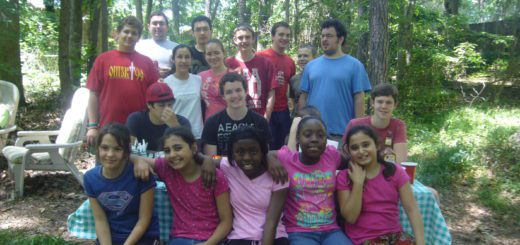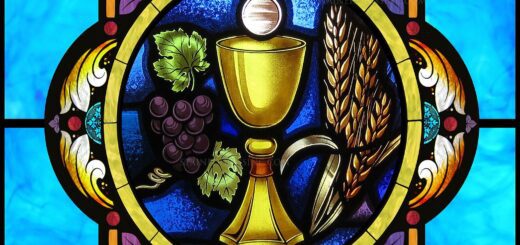Our actions can and do affect others
August 15th, 2021 – Communion Meditation
Isaac Newton is famous for several things, including what we now know as Newton’s Laws of Motion. The third law states that for every action, there is an equal and opposite reaction. While that is true in classical mechanics, we all know that life does not always operate in such predictable, fair, or just ways. The reality is that each of our actions can and do affect others. Sometimes we see the results and have the opportunity to either celebrate and express gratitude or apologize and ask for forgiveness, as the case may be. Unfortunately, because we live in a very broken world that is not completely fair or just, the negative consequences of the actions of others tend to affect the poor, marginalized, and vulnerable the most. They are the ones who suffer the most.
We can look at the ocean of human suffering in the world and feel overwhelmed. We might think that anything we do would be so trivial that it wouldn’t make a difference. But God’s laws are infinitely more reliable than anyone or anything. God promises us that if we plant even the tiniest seed of faith in love, He will make it grow and multiply. As Mother Teresa famously said, “We can do no great things, only small things with great love.”
Luke 10:25-37 (The Message) – “a religion scholar stood up with a question to test Jesus. “Teacher, what do I need to do to get eternal life?” He answered, “What’s written in God’s Law? How do you interpret it?” He said, “That you love the Lord your God with all your passion and prayer and muscle and intelligence—and that you love your neighbor as well as you do yourself.” “Good answer!” said Jesus. “Do it and you’ll live.” Looking for a loophole, he asked, “And just how would you define ‘neighbor’?” Jesus answered by telling a story. “There was once a man traveling from Jerusalem to Jericho. On the way he was attacked by robbers. They took his clothes, beat him up, and went off leaving him half-dead. Luckily, a priest was on his way down the same road, but when he saw him he angled across to the other side. Then a Levite religious man showed up; he also avoided the injured man. A Samaritan traveling the road came on him. When he saw the man’s condition, his heart went out to him. He gave him first aid, disinfecting and bandaging his wounds. Then he lifted him onto his donkey, led him to an inn, and made him comfortable. In the morning he took out two silver coins and gave them to the innkeeper, saying, ‘Take good care of him. If it costs any more, put it on my bill—I’ll pay you on my way back.’ What do you think? Which of the three became a neighbor to the man attacked by robbers?” “The one who treated him kindly,” the religion scholar responded. Jesus said, “Go and do the same.””
Notice that the Scripture says that as the Good Samaritan was traveling, he happened to pass the injured man. He didn’t know he would see someone in need. He might have had a schedule or deadline by which he needed to reach his destination. He might have only had enough money for his own needs that day. But he had cultivated a soft heart, because we are told, “His heart went out to him.” And then he did something about it. He didn’t just feel sad that the man was injured. He took care of him as much as he was able. He gave what he had to provide longer term care. His kindness is how we know that he was a good neighbor.
We can ask ourselves several questions today as we come to our time of Communion, a time in which we are communing, meeting with God Himself – with our heavenly Father, with Jesus Christ, with the Holy Spirit. We are asking Him in the mystery of this moment to meet with us and give us fresh grace, fresh revelation, changed hearts, renewed minds, to replace our desires with His, to fill us afresh today. As we eat the bread and drink the cup in obedience to Jesus’ words to do these things in remembrance of Him, I encourage you to listen to the Lord’s voice in these holy moments and notice what it is He is saying to you today.
1 Corinthians 11:23b-26 – “the Lord Jesus on the night when he was betrayed took bread, and when he had given thanks, he broke it, and said, “This is my body, which is for you. Do this in remembrance of me.” In the same way also he took the cup, after supper, saying, “This cup is the new covenant in my blood. Do this, as often as you drink it, in remembrance of me.” For as often as you eat this bread and drink the cup, you proclaim the Lord’s death until he comes.”




